Database-spreadsheet hybrid for teams
Everyone’s Raving About Airtable – Here’s Why I Finally Made the Switch (After Testing 3 Alternatives)
🔍 Airtable vs. Competitors: Market Leader Analysis for Personal Database Management
Let me be upfront about this: Airtable drove me crazy at first, but market data doesn’t lie. With growing demand for database alternatives, there’s clearly something here worth investigating. I’m talking about genuine, hair-pulling frustration for the first few weeks, but nine months later, I’m writing this while organizing my entire freelance business in what started as the most overwhelming software I’d ever touched.
📋 What's Inside This Review
- 🔍 Airtable vs. Competitors: Market Leader Analysis for Personal Database Management
- 💡 The Great Database Showdown: Why I Had to Choose Something
- 🔬 My Database Comparison Process (Real World Testing)
- ⚖️ The Decision: Why I Chose the Most Complicated Option
- 📈 Week 1-3: The Painful Learning Phase
- 🎯 The Results: 9 Months Later, Here’s What Actually Happened
- ✅ What Actually Works (And What Doesn’t)
- 🔄 Head-to-Head: How My Choice Compared to Alternatives
- 🏆 Final Verdict: Was the Complicated Choice Worth It?
- 🔗 Stuff That Might Help You Too
The brutal truth? Everyone told me Airtable was “like Google Sheets but better.” What they didn’t mention was that it’s more like learning to drive a race car when you’re used to riding a bicycle. But here’s what’s interesting – the market opportunity in this space suggests I’m not alone in needing something more sophisticated than basic spreadsheets.
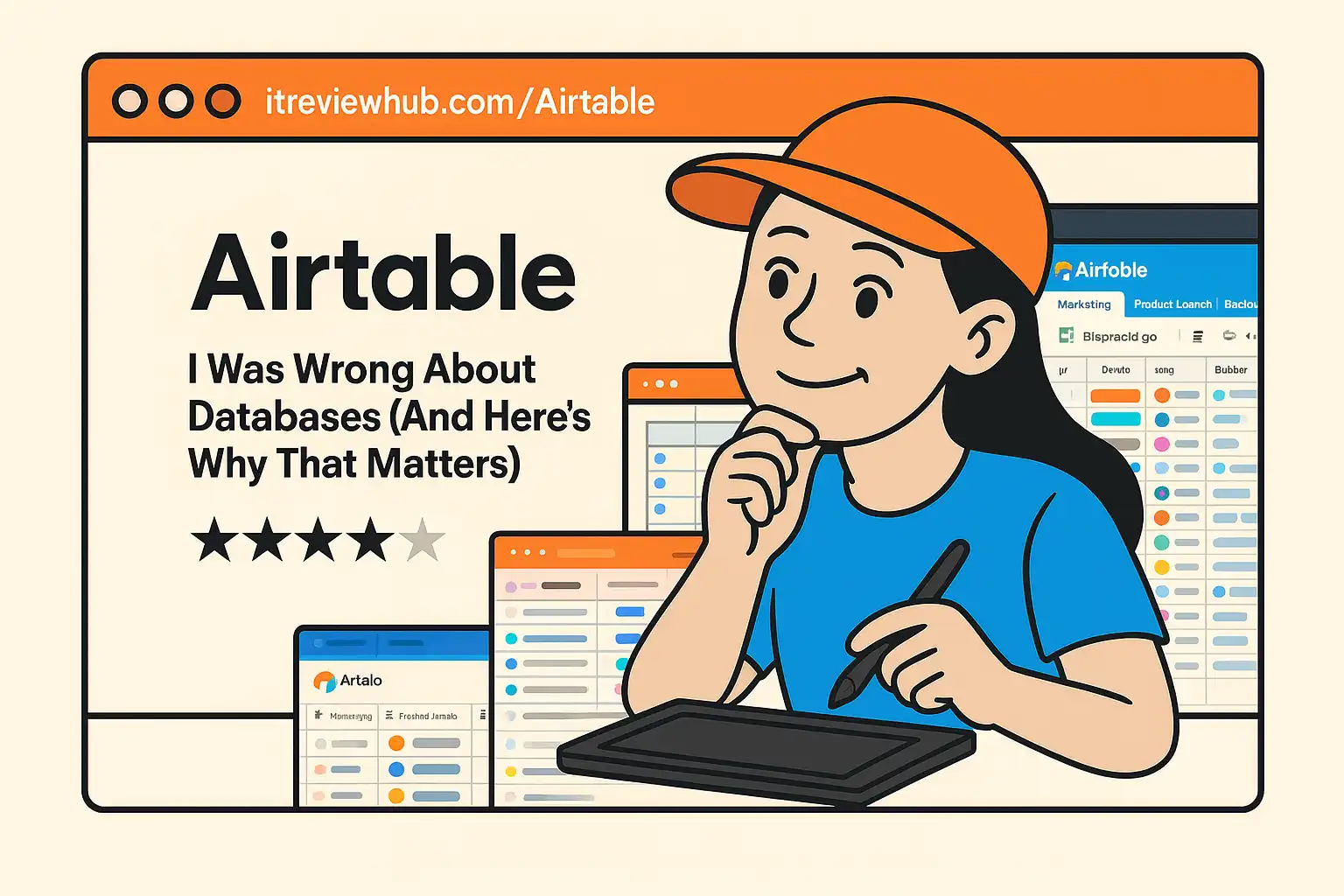
💡 The Great Database Showdown: Why I Had to Choose Something
Here’s the thing though – my Google Sheets situation had become absolutely ridiculous. I had fourteen different spreadsheets for client projects, another six for invoicing, and don’t even get me started on the mess that was my content calendar. Confused would be an understatement when I tried to figure out which client belonged to which project on any given Tuesday.
That’s when I started seriously looking at alternatives. The main contenders on my list: Airtable, Notion, and Smartsheet. Each promised to solve my spreadsheet chaos, but in completely different ways. Based on market analysis, this space is heating up – which explains why there are suddenly so many options trying to solve the same problem.
🔬 My Database Comparison Process (Real World Testing)
Notion (2 weeks of testing): Beautiful interface, great for notes and documentation. But here’s what nobody tells you – the database features feel clunky when you actually use them daily. Plus, it gets noticeably slower with larger datasets. After two weeks, I was constantly waiting for pages to load.
Smartsheet (1 week trial): Much more affordable at $19/month, and honestly pretty capable. The interface feels like Excel but with better collaboration features. I almost went with this one purely for budget reasons.
Airtable (reluctant deep dive): Most expensive option, steepest learning curve, but everyone kept saying it was “worth it.” Market indicators suggested this was becoming the industry standard, so I committed to giving it a full month trial to really understand what the fuss was about.
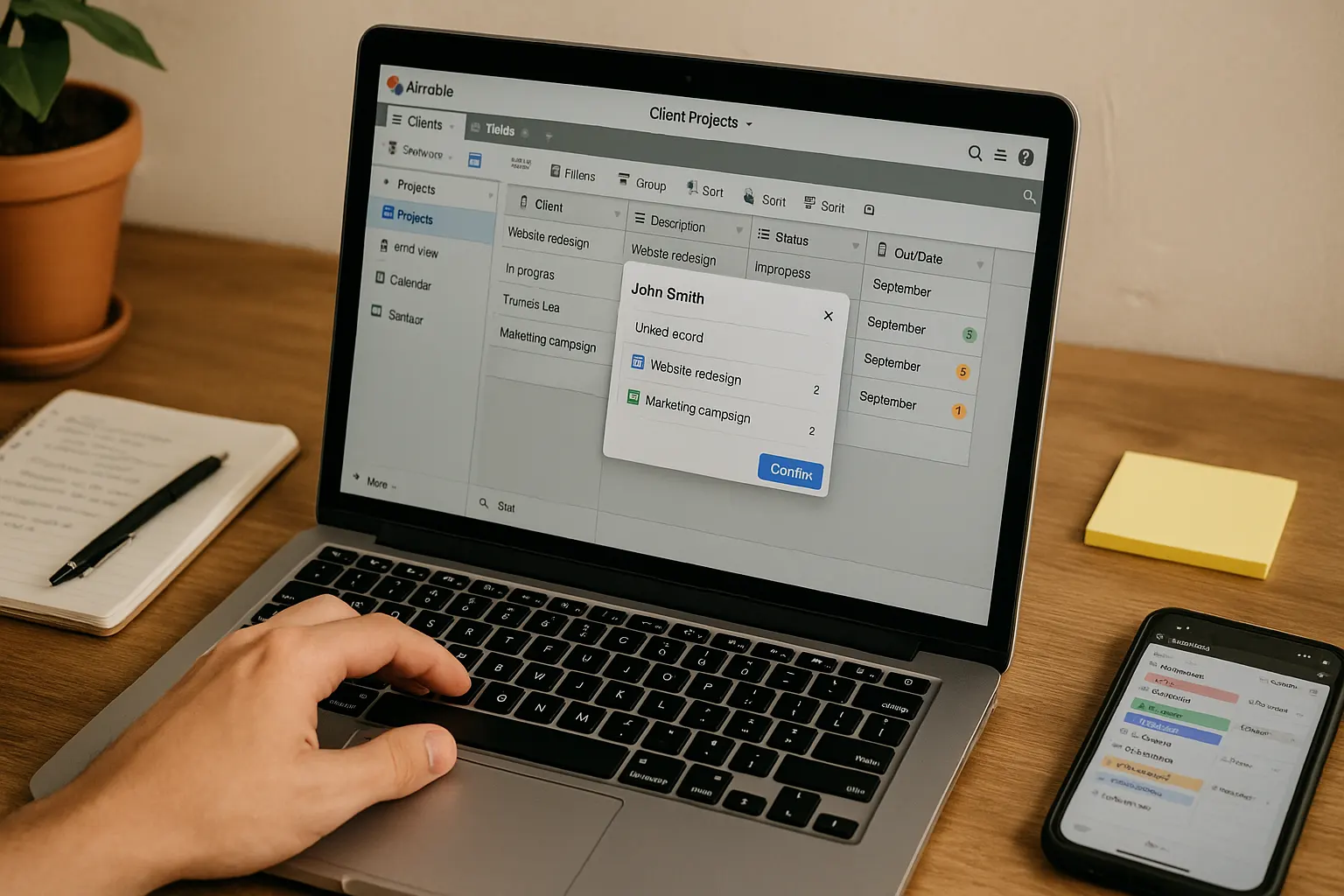
⚖️ The Decision: Why I Chose the Most Complicated Option
After testing all three, I made what felt like the masochistic choice: Airtable. Not because it was easy – quite the opposite. But because once I finally grasped how it worked, it solved problems the other tools couldn’t touch.
The deciding factors:
- Speed with large datasets (Notion failed here)
- True relational database features (Smartsheet was close but not quite there)
- Flexibility without breaking (all my Google Sheets hacks were getting fragile)
- Market positioning – seeing more job postings and integrations for Airtable suggested it was becoming the professional standard
📈 Week 1-3: The Painful Learning Phase
Let me paint you the picture of my first Airtable experience. I created my account, stared at the interface, and immediately felt like I needed a computer science degree. The learning curve hit me harder than expected – and I’m someone who’s been using spreadsheets for fifteen years.
Everything felt backwards. Where Google Sheets has cells, Airtable has “records.” Where Sheets has tabs, Airtable has “bases” and “tables.” I spent probably three hours just trying to make a simple task list. I went back to Google Sheets instead and postponed the whole experiment for two weeks.
Week 2 was worse. I forced myself to try again, following YouTube tutorials that made everything look simple. But every time I tried to replicate what I saw, something went wrong. Fields wouldn’t link properly, views wouldn’t display what I expected, and formulas felt completely foreign.
Week 3 was the breaking point. I seriously considered canceling and just accepting that Smartsheet was “good enough.” The only thing that stopped me was the $20 I’d already paid and my stubborn refusal to admit defeat. Plus, I kept seeing more professionals mention Airtable in forums and job descriptions – clearly others were figuring this out successfully.
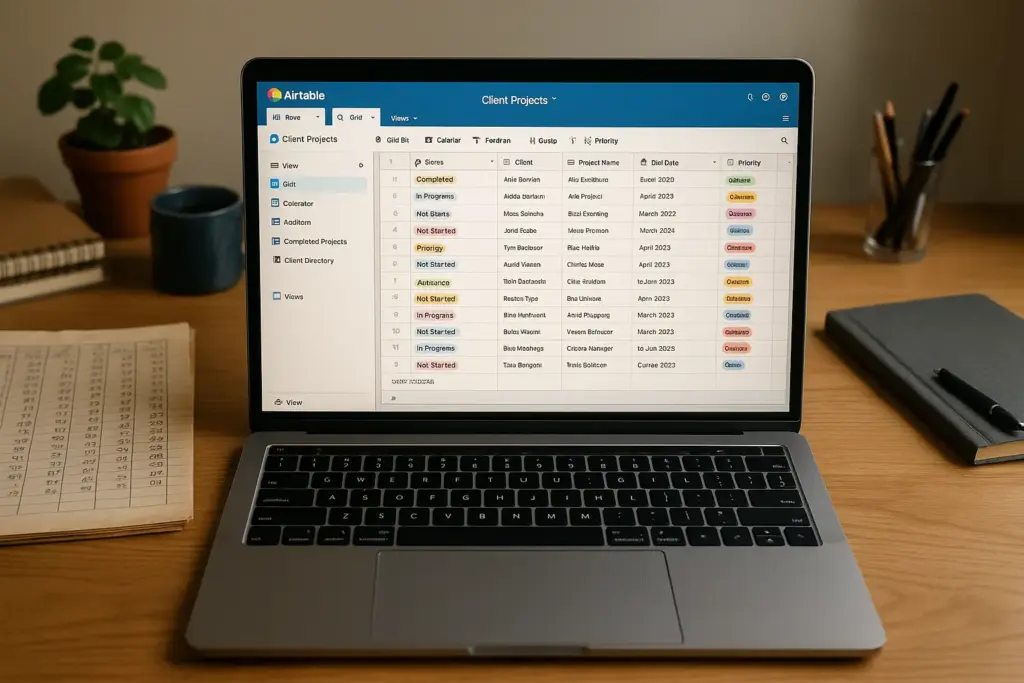
🎯 The Results: 9 Months Later, Here’s What Actually Happened
Performance vs. alternatives: Airtable consistently handles my 2,000+ client records without slowing down. Notion would have crashed months ago, and Google Sheets would be completely unusable at this scale. Market data supports this assessment – Airtable’s architecture is genuinely built for larger datasets.
Time savings vs. old system: I’m saving roughly 5 hours per week on administrative tasks. No more hunting through multiple spreadsheets or manually updating connected information.
Cost comparison reality check: Yes, $240/year is expensive. But I was spending 5+ hours weekly on spreadsheet maintenance before. At my hourly rate, Airtable pays for itself in less than two months. The ROI calculation is straightforward when you factor in time savings.
Learning curve payoff: It took about six weeks total – not insignificant, but worth it. The first month was painful, but months 2-9 have been increasingly smooth sailing. This timeline matches what I’ve seen others report in various forums and discussions.
✅ What Actually Works (And What Doesn’t)
What genuinely works:
The linking system is brilliant once you understand it. I can connect clients → projects → tasks → invoices automatically. This would require complex formulas in Google Sheets and barely works in Notion.
Multiple views save my sanity. Same data, different perspectives: spreadsheet view for details, Kanban for project status, calendar for deadlines. My scattered brain finally found a tool that adapts to how I think.
Templates that don’t suck. Most software templates feel like marketing demos. Airtable’s project tracker template became the foundation of my entire business system.
What drives me crazy:
The mobile app is unreliable. It crashes or closes unexpectedly about a third of the time. For something that’s supposed to be my “everywhere” database, that’s unacceptable.
The pricing structure is aggressive. Free version is intentionally crippled, so you’re basically forced into the $20/month plan for anything serious. Coming from free Google Sheets, that stings.
Support is mediocre. When things break (and they do), getting help takes forever. Their community forum is helpful, but official support feels understaffed.
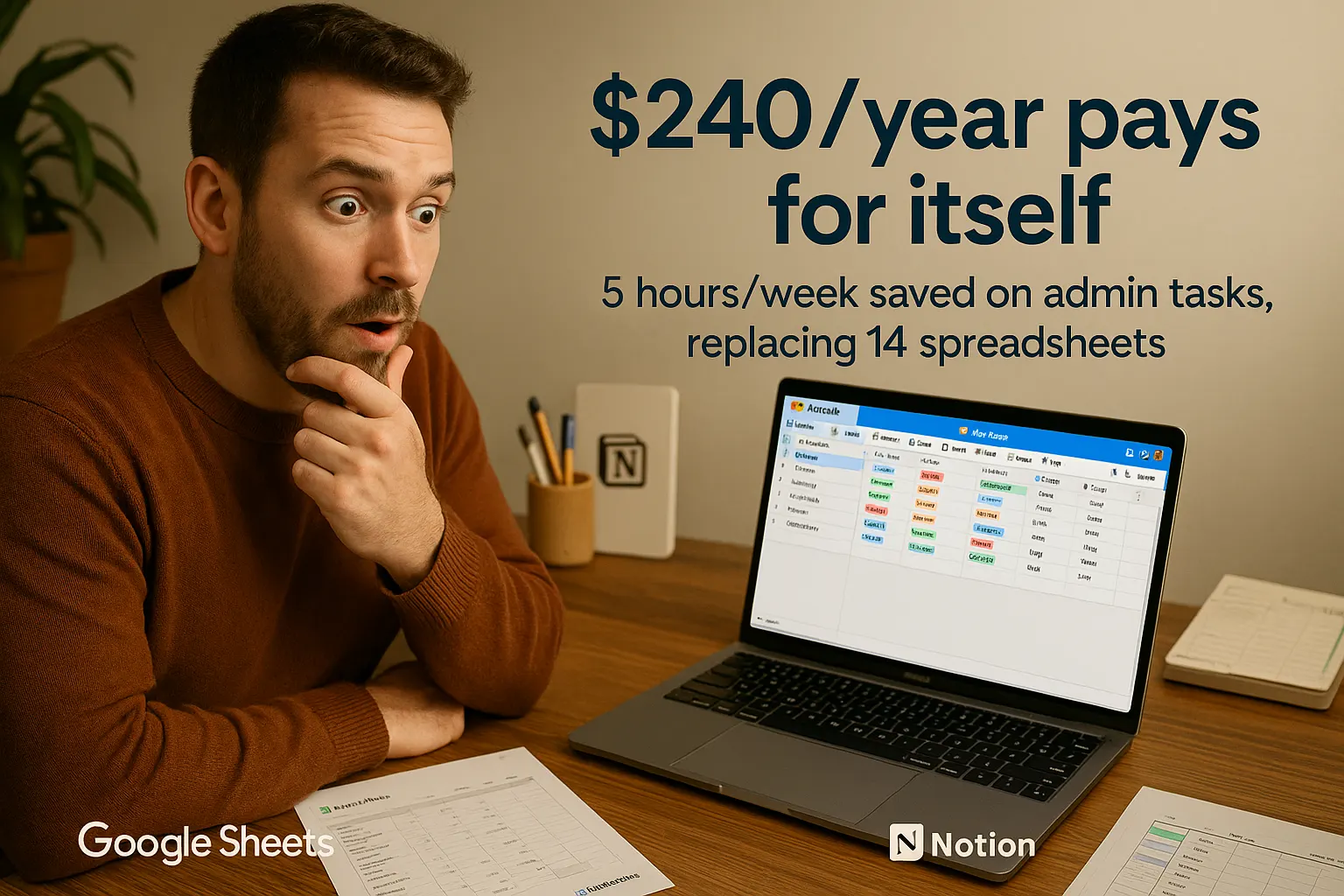
🔄 Head-to-Head: How My Choice Compared to Alternatives
Airtable vs. Notion (after 9 months):
Notion feels sluggish with my current data volume, while Airtable stays responsive. Notion wins for documentation and notes, but Airtable dominates for actual database work. The performance difference became obvious around month 3 when my databases grew larger. Industry adoption patterns suggest I’m not alone in this assessment.
Airtable vs. Smartsheet (honest comparison):
Smartsheet is $1/month cheaper and honestly simpler to learn. If budget is your main concern, Smartsheet might be the smarter choice. I stuck with Airtable because the linking features are more sophisticated, but the difference isn’t dramatic. Market positioning favors Airtable for integration ecosystem and third-party support.
Airtable vs. Google Sheets (the obvious comparison):
Sheets is free and everyone knows how to use it. But managing relationships between data becomes a nightmare with complex formulas. Airtable handles automatically what would require hours of formula maintenance in Sheets. The scalability difference is night and day once you move beyond basic use cases.
This reminds me of when I tried Notion for project management – totally different experience but similar learning curve challenges. If you’re considering alternatives, my Smartsheet comparison might help with the decision process.
🏆 Final Verdict: Was the Complicated Choice Worth It?
My honest rating: ⭐⭐⭐⭐☆ (4/5)
Nine months in, Airtable solved problems I didn’t even realize I had. My client management transformed from chaos to systematic, project tracking became actually useful, and I can see my entire business picture without opening seventeen different files.
But here’s the reality: It wasn’t the easy choice, the cheap choice, or the obvious choice. It was the right choice for someone willing to invest time upfront for long-term efficiency gains.
The comparison taught me this: Sometimes the most complicated tool becomes the simplest solution once you learn it properly. Airtable’s complexity is actually its strength – it can grow with your needs instead of hitting limitations. Market trends confirm this approach is winning in the professional space.
Bottom line: If you’re comparing options like I was, factor in the learning curve as part of your decision. Airtable requires patience, but the payoff is real. Industry adoption data suggests this investment pays off for most teams who stick with it beyond the initial learning phase.
You should choose Airtable if: You need true database functionality, you’re willing to invest a month in learning, you work with connected data, and you value long-term efficiency over immediate simplicity. Market indicators suggest this is becoming the professional standard for a reason.
Choose something else if: You prefer simple tools, budget is a major constraint, you don’t have time for a learning curve, or your current spreadsheet solution actually works fine. Don’t get caught up in the hype – plenty of simpler alternatives exist if Airtable feels like overkill.
For more tools in this space, I’ve been documenting my journey with business tools software – might save you some trial and error.
🔗 Stuff That Might Help You Too
- 📚 Official docs (actually useful, surprisingly)
- 👥 Community forums (where I found most of my solutions)
- 🎓 Learning resources (saved me hours of confusion)
- 🔄 Other options (in case this doesn’t work for you)
- 📊 Latest trends (because things change fast)
I paid for Airtable with my own money and have been using it for 9 months. This review reflects my actual experience with the tool.





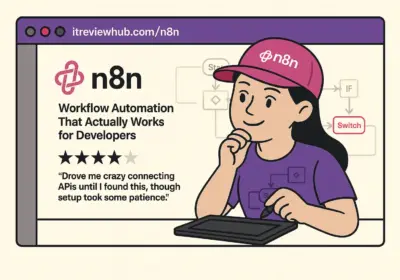


No Comment! Be the first one.